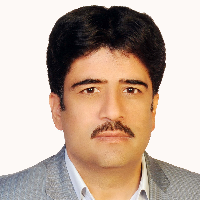Investigating the Impact of Intelligence Cultural Dimensions on the Performance Tasks of Dehyaran (Case Study: Villages of Mashhad County)
Nowadays, managing in different villages, especially villages with ethnic, religious, linguistic and especially metropolitan border villages is a multicultural challenge due to the large number of immigrants. Cultural intelligence helps rural managers to understand different audiences, manage diverse teams, apply intercultural talents and adapt to leadership networks. In this research tried to study the effect of cultural intelligence on the performance of the duties of rural dignitaries in rural area. The research method in this descriptive-analytic study is a major part of its data collected based on field studies from the region. The statistical population of the study consisted of 24 sample villages with a population of 86856 people in the form of 23997 households. The sample size of 227 people was determined by Cochran method and selected by systematic random sampling from among the villagers. In this sample, the number of 24 dignitaries, 24 members of the Islamic Council of the provinces and 6 administrative experts were added, finally 281 questionnaires were completed. The findings of the study, based on the results of structural analysis, show that in general, cultural intelligence has a positive and direct effect on the performance of jobseekers with a coefficient of 0.776. Among the dimensions of cultural intelligence, the strategy followed by the coefficient of 0.3447 had the most positive and significant effect on the performance of the duties of the tenants, after which the dimensions of behavior, knowledge and motivation of cultural intelligence were effective on the performance of the duties of tenants.
-
Analysis of the livelihood diversity effects on rural household resilience in the face of climate changeCase study: Suburban villages of Dehdasht city
Soroush Sanaei Moghadam*, Ali Akbar Anabestanei, Bijan Rahmanei, Farhad Azizpour
Quarterly Journal of Space Economy & Rural Development, -
Evaluation and prediction of land use changes in Arak and surrounding villages using hybrid cellular automata-Markov chain model
Soha Tavakoli, Bijan Rahmani *, Ali Akbar Anabestani
Journal of Urban Peripheral Development,


